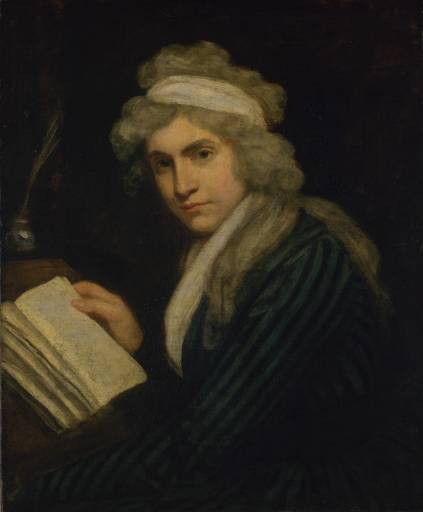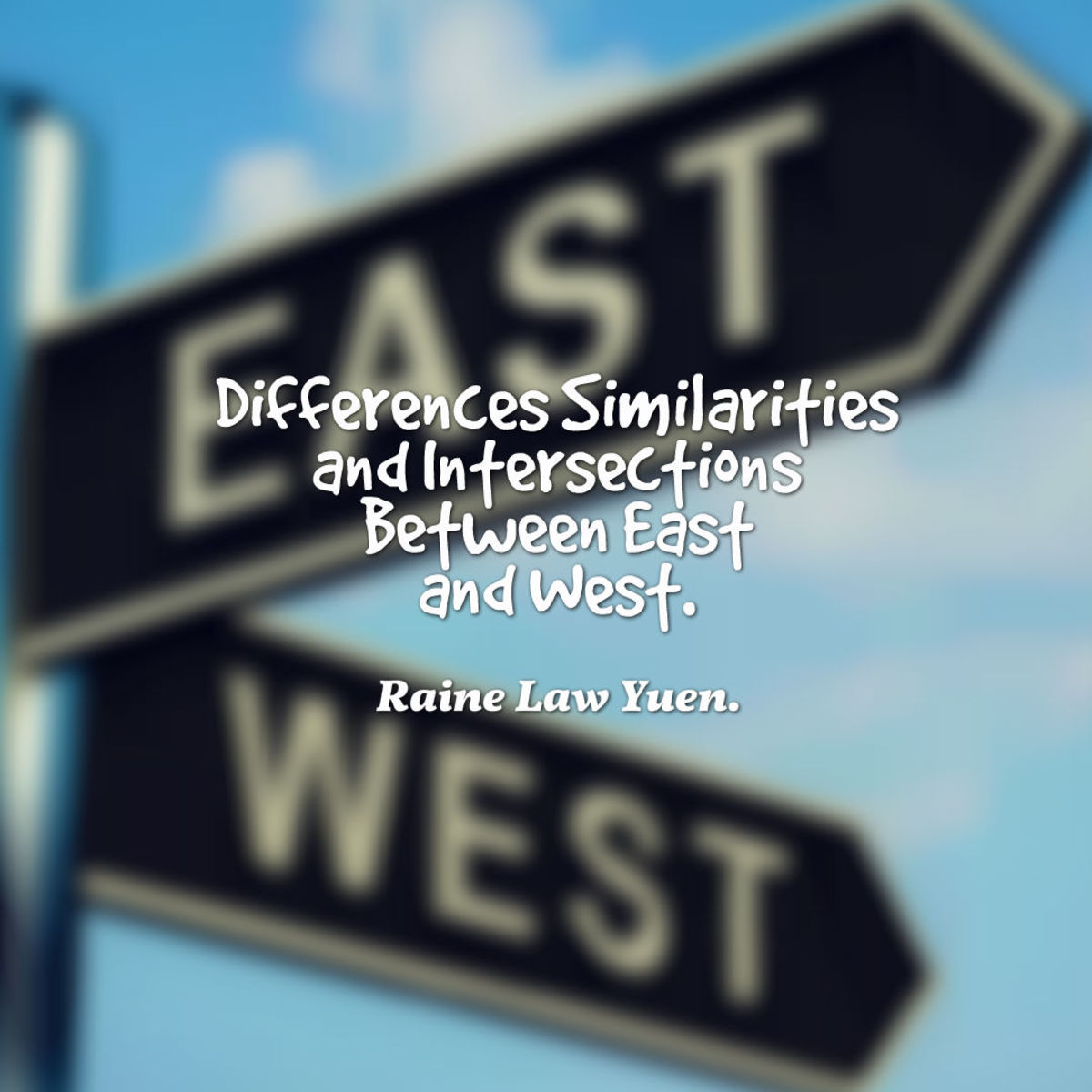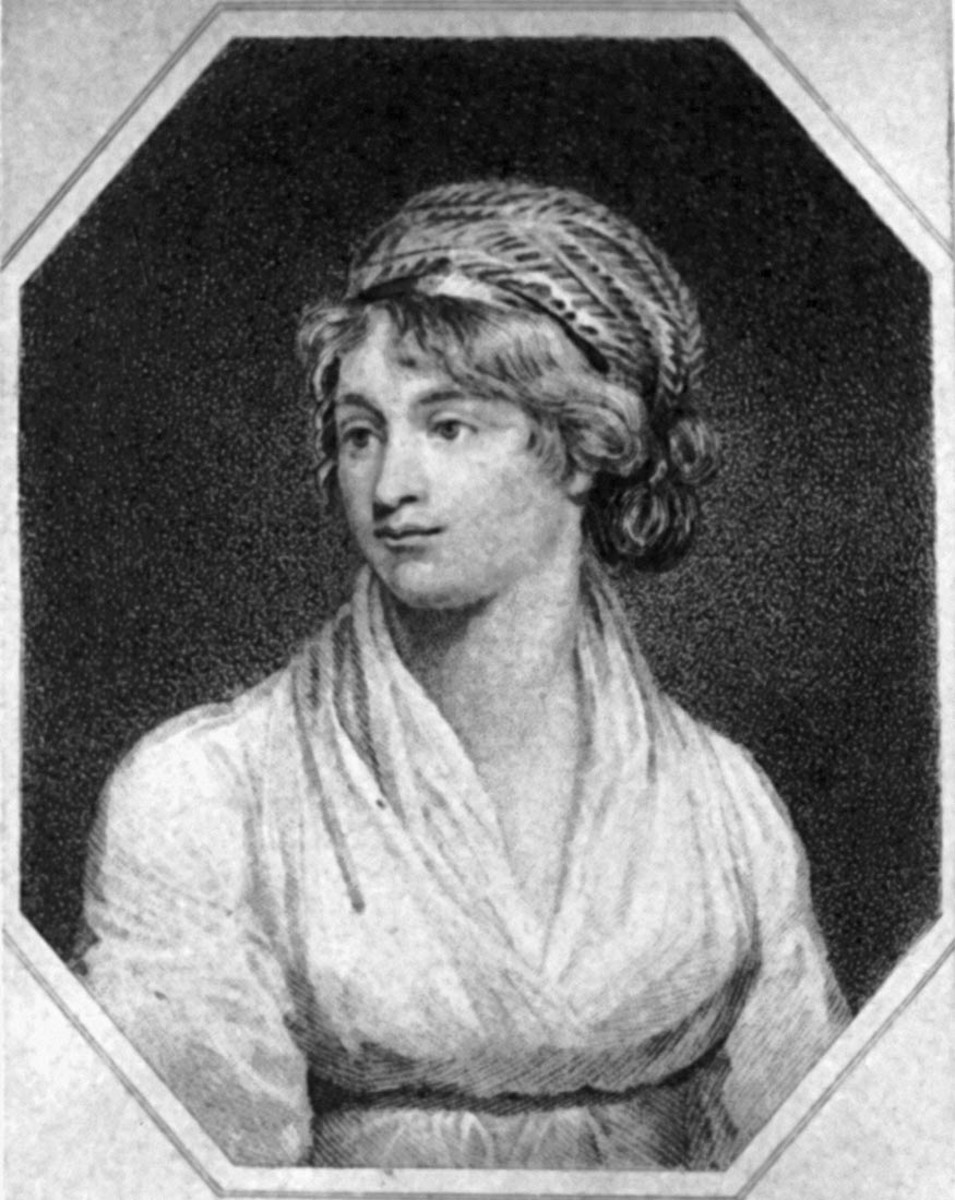Mary Wollstonecraft: Most Influential Figure during the Enlightenment

The Enlightenment was an era of excitement and wonder – where belief was set on the back burner and reason became the forefront of Western Civilization. The Enlightenment spawned vast political, philosophical, and scientific advances which seem to have been fueled by the Thirty Years’ War. This war brought about much civil revolt through writings on, and often against the ideas expressed by those in power. As the public began to accept and understand these new arguments, a desire to base decisions off reason was born. This desire led to enormous advancements in the ways of the Western World through exploration and discovery of new ideas. The introduction to new cultures brought about new philosophies and religions, and new technology that would aid in further exploration of the world. Many important political, philosophical, and scientific characters arose from the Enlightenment, also referred to as the Age of Reason. One particularly important individual, whom influenced nearly half the Western World’s population and a great deal of modern-day people, was Mary Wollstonecraft.
Mary Wollstonecraft was a feminist and philosopher from Great Britain, who lived through the latter half of the 17th century, but died before the turn of the 18th century. Wollstonecraft was influential to an immense number of women in the Western World. In Rondo Cameron’s Concise Economic History of the World, the population of Europe in the early 1800’s was around 150 million. There is little evidence of what the population may have been prior to this time. The human sex-ratio is 106 boys to every 100 girls accordingto Our Stolen Future, by Theo Colborn, Dianne Dumandski, and John Peterson Myers, which would mean that (assuming this ratio applied to the 18th century population) just under a half of Europe’s population were women, which was a large number of people to influence, especially at a time of such open-mindedness. While much of the population was uneducated, by word of mouth Wollstonecraft’s ideas were passed around and probably had influence on a large portion of European women, even those uneducated, as well as men. Wollstonecraft is most famous for writing her A Vindication of the Rights of Woman. In the book, which is on her personal feminist philosophy, she states her intentions right off the bat:
“I wish to persuade women to endeavour to acquire strength, both of mind and body, and to convince them, that the soft phrases, susceptibility of heart, delicacy of sentiment, and refinement of taste, are almost synonymous with epithets of weakness, and that those beings who are only the objects of pity and that kind of love, which has been termed its sister, will soon become objects of contempt.”
In this quote, she boldly projects her strong opinions, which are worded powerfully and are full of influence. Wollstonecraft’s philosophy dictated that women were to be more than just wives and caretakers: they were to educate children, and to act not as slaves to their husbands, but as companions. This text fueled much controversy, as it tended to be somewhat biased against the poor, and made great proclamations about gender roles; but controversy, as in any opinion piece, is to be expected.
While a bold leader of her time, Wollstonecraft’s reputation took a turn for the worse when her widowed husband, William Godwin, published his Memoirs of the Author of a Vindication of the Rights of Woman. In this, Godwin reflected upon Mary’s life and, while honest, the writing was not well received as it discussed certain affairs that ended up ruining her reputation. Despite this, the modern interpretation of her is glorious, often giving wollstonecraft such titles as “the mother of feminism” and “the first feminist.” In her time, many of her ideas were considered radical, while the contemporary world now accepts many of these as popular belief. Wollstonecraft raised arguments in her writings that, while controversial, were the basis of many women’s rights movments that are still occurring even today.
In essence, the Enlightenment was a period of expansion for the Western World. While not a biologist or explorer, Woolstonecraft was a philosopher, quite notably so since the remnants of her beliefs are still observed on a regular basis. As a philosopher, she did what no other person could do – she expressed her personal viewpoints on a subject. While any person can learn to sail a boat, or work with numbers and conduct experiments, Wollstonecraft worked with words in a way no other person could, which is what makes her so influential to the world. Considering the sheer numbers of people that were changed by her works and life, and the lasting effect she has had on the world, there is little argument to suggest that Mary Wollstonecraft was not one of the most, if not the most important figure during the Enlightenment; the Age of Reason.








